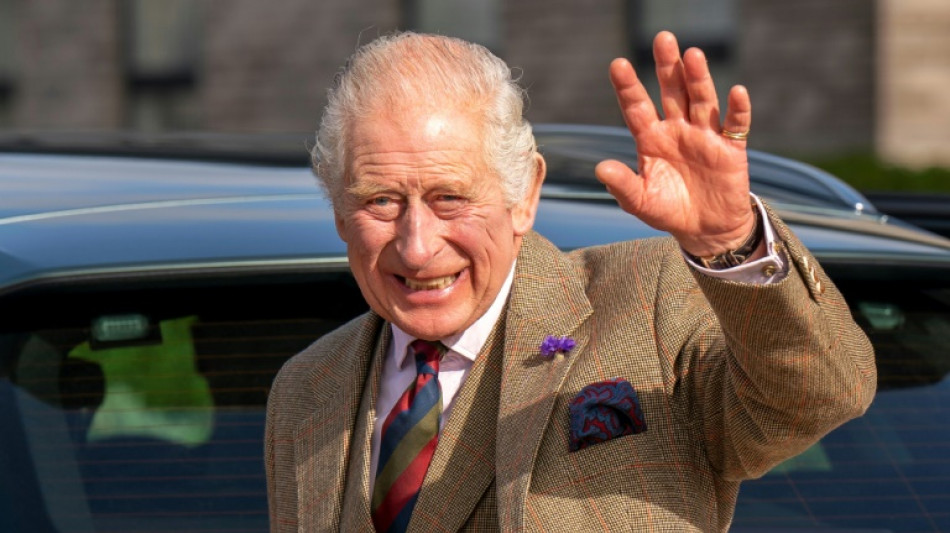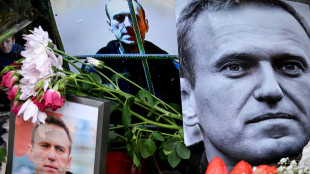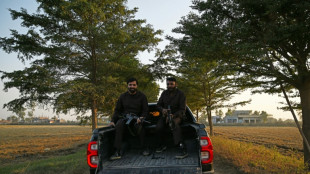
Colonialism on agenda for King Charles visit to Kenya

King Charles III embarks Tuesday on a four-day trip to Kenya, his first visit as monarch to a Commonwealth nation, where any comments he makes on Britain's colonial past will be closely scrutinised.
Charles is expected to tackle "the more painful aspects" of the UK's historic relationship with Kenya -- namely the period of British rule, which ended in 1963, Buckingham Palace has said.
This will include the "Emergency" of 1952-1960, when colonial authorities imposed a state of emergency in response to the Mau Mau guerrilla campaign against European settlers.
"His Majesty will take time during the visit to deepen his understanding of the wrongs suffered in this period by the people of Kenya," the palace said this month, announcing the trip.
About 10,000 people -- mainly from Kenya's Kikuyu community -- were killed during the suppression of the uprising and as a result, the royal visit is likely to be greeted with mixed emotions.
The king's trip also comes as the African nation prepares to celebrate 60 years of independence from Britain in December.
The choice of Kenya for his first visit to a Commonwealth nation since becoming king in September has special resonance for the royal family.
It was there in 1952 that Charles's mother -- the late Queen Elizabeth II -- learned of the death of her father, King George VI, marking the start of her historic 70-year reign.
Charles and his wife Queen Camilla will be welcomed by Kenyan President William Ruto in Nairobi on Tuesday.
- Commonwealth 'mission' -
During two days in the capital, he will meet entrepreneurs, young Kenyans and participate in a state banquet.
He will also visit a new museum dedicated to the East African nation's history and lay a wreath at the Tomb of the Unknown Warrior in Uhuru Gardens, where Kenya declared independence in December 1963.
The king and queen will then travel to the coastal city of Mombasa, where they will visit a nature reserve and meet representatives of various religions.
The visit comes 40 years after Elizabeth's state visit to Kenya in November 1983.
The Commonwealth is a grouping of 56 countries -- most of them former British colonies, and including Australia, Canada and New Zealand.
More than a dozen Commonwealth nations still recognise the UK monarch as head of state.
But clamour to become a republic is growing among some of them, including Jamaica and Belize. Barbados already ditched having the UK's monarch as head of state in 2021.
Britain's Daily Mail newspaper has billed Kenya as "the first stop" on Charles's "mission to save the Commonwealth".
"The late Queen was very much connected to the Commonwealth," said Poppy Cullen, African history lecturer at the University of Cambridge.
"And I imagine that the British government will be keen that the king sort of does something similar to try and raise its profile or keep it together."
She thinks the visit is an opportunity for Britain to show other nations that there are benefits to being an independent republic within the Commonwealth, the way Kenya is.
"It does help potentially as a model for others," she told AFP.
- Apology? -
Ruto wrote on X (formerly Twitter) that the visit was an "opportunity to enhance our collaboration in various areas of shared interest".
Bilateral talks are expected to focus on "climate action, biodiversity, sustainable urban development, youth, technology and innovation and women empowerment," the Kenyan presidency said in a statement Monday.
But colonial history won't be far away.
After a court case lasting several years, Britain agreed in 2013 to compensate more than 5,000 Kenyans who had suffered abuse during the Mau Mau revolt, in a deal worth nearly 20 million pounds (almost $25 million at today's exchange rates).
After Prince William expressed "profound sorrow" for the slave trade during a trip to Jamaica last year, stopping short of a formal apology, Charles's words in Kenya will be "watched very closely," according to Cullen.
If he apologises or expresses regret then other countries "will expect something themselves".
"I think it will potentially set a kind of precedent," Cullen added.
Another lingering source of tension is the presence of British troops in Kenya.
In August, the Kenyan parliament launched an inquiry into the activities of the British army, which has a base on the outskirts of the town of Nanyuki, about 200 kilometres (120 miles) north of Nairobi.
Charles has made three previous official visits to Kenya, in 1971, 1978 and 1987, and both the king and queen have also visited the country privately.
M. Tschebyachkinchoy--BTZ

 London
London

 Manchester
Manchester
 Glasgow
Glasgow
 Dublin
Dublin
 Belfast
Belfast
 Washington
Washington
 Denver
Denver
 Atlanta
Atlanta
 Dallas
Dallas
 Houston Texas
Houston Texas
 New Orleans
New Orleans
 El Paso
El Paso
 Phoenix
Phoenix
 Los Angeles
Los Angeles



